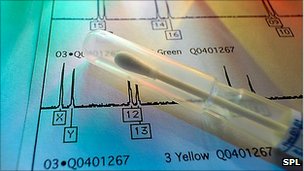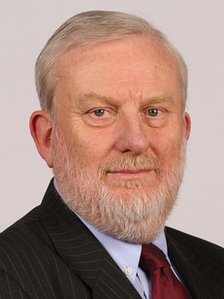 The government wants private providers to fill the gap left by the FSS
The government wants private providers to fill the gap left by the FSS
The government has defended its decision to close the Forensic Science Service (FSS), which analyses crime scene evidence in England and Wales.
In its response to a damning inquiry report into the closure, it says allowing the service to enter administration would have seriously damaged the criminal justice system.
The government also denies suggestions it did not fully consider alternatives to closure.
The FSS was losing some £2m a month.
The government wants to transfer operations to private enterprise, which currently makes up 40% of the forensics market.
The original inquiry report by the cross-party House of Commons science and technology committee was published in July this year. It was chaired by Labour MP Andrew Miller.
The inquiry concluded the government had not given sufficient consideration to the wider impacts of closing the FSS. Implications for criminal justice, research and evidence archives were "hastily overlooked" for financial reasons, it said.
Shrinking market
The response says the FSS archives - which contain case files and samples - will remain available for use in court and in cold cases after March 2012. But there is no agreement on a long-term solution.
Government response to FSS inquiry
While accepting some of the committee's findings, the government denied accusations of a "systemic problem" with the Home Office's use of scientific evidence.
"Science has a vital role in underpinning the Home Office's work," the response states.
The committee had criticised what it described as the "minimal" consultation carried out before opting to shut the FSS, which employed 1,600 people.
It claimed the Home Office had effectively sidelined its chief scientific adviser, Dr Bernard Silverman, and described his satisfaction at his exclusion from the decision-making process as "unacceptable".
But the government strongly rejected this critcism: "We needed to find a commercial and legal solution for the serious financial difficulties facing the FSS. The Home Office chief scientific adviser does not provide commercial or legal advice to ministers," it says.

Mr Miller said the decision should also have been taken on scientific grounds
The government claims that allowing the FSS to enter administration "would have seriously damaged the forensics capability available to the [criminal justice system - CJS]. We were not prepared to expose the CJS to that level of risk."
In a reply, Andrew Miller MP welcomed the government's acceptance of committee recommendations on the continued operation of the FSS archives and on ensuring casework is not transferred to unaccredited forensic providers.
But he added: "It is disappointing that the Home Office has failed to recognise that the decision to close the FSS should not have been taken purely on commercial and legal grounds, but also on scientific grounds.
"The government says it is confident that the wind-down of the FSS is the right decision. I will be asking the committee to keep a close eye on the transition as I still fear that the forensic science research base and criminal justice system could be jeopardised if the Minister's optimism is ill founded."
FSS offices in London, Birmingham (Trident Court), Wetherby and Huntingdon are still operating; sites in Chorley, Chepstow and Birmingham (Priory House) have been shut as part of restructuring announced in 2009.
A spokeswoman for the FSS said it was currently working to transfer some 180 staff to the Metropolitan Police.
The service shut its doors to new casework submissions from most forces on 3 October but will continue to support the North-East region and the Met Police past that date. But all operations will have to be transferred by next year's closure date.


